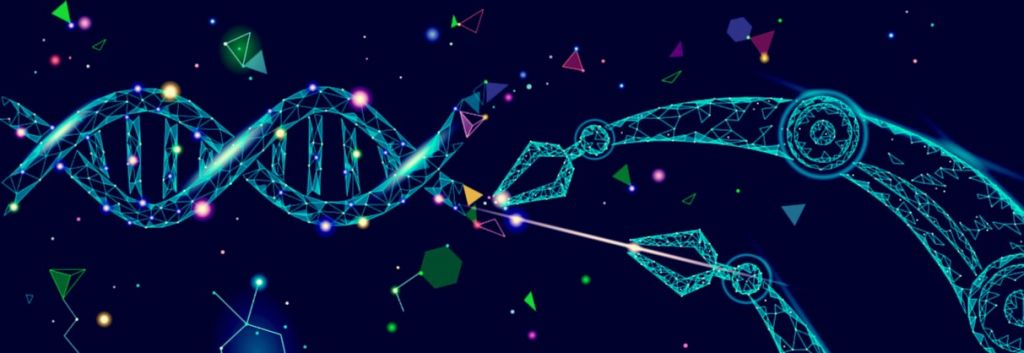The biotech community is raving about the long-anticipated recognition of the groundbreaking CRISPR-Cas9 gene editing tool, with the Nobel Prize in Chemistry awarded to two of its leading developers this week.
The Prize in Chemistry went to Emmanuelle Charpentier, Director at the Max Planck Institute for Infection Biology in Berlin, and Jennifer Doudna, a Professor at the University of California, US. The two researchers achieved fame in 2012 when they developed the revolutionary tool CRISPR-Cas9 to make gene editing easier and quicker than ever. Notably, Doudna and Charpentier are just the sixth and seventh women to receive the prestigious Chemistry prize.
“We are delighted to see that such a remarkable achievement in the area of bioscience has been recognized with this highest honor,” said industry group Europa Bio. “Increased public engagement will facilitate dialogue, sharing of information, and trust-building, which are key for the future advancement of genome editing.”
Since the breakthrough in 2012, research on CRISPR-Cas9 has mushroomed, and more than 20,000 papers have been published over the course of the past few years. Scientists have sought to apply the tool both in order to study the functions of different genes and to cure ailments ranging from sickle cell disease to blood cancers to rare genetic disorders of the eyes.
CRISPR-Cas9 is derived from the primitive immune systems of bacteria and archaea, which use a similar mechanism to cut out the genetic material of invading viruses from their own genome. Its main advantage over other, older, and potentially more accurate gene editing tools is that it can be easily and quickly applied to any genetic sequence.
Like many scientific breakthroughs, the development of CRISPR-Cas9 as a gene editing tool has been the subject of bitter controversies: Charpentier and Doudna, who built on the earlier work of Spanish scientist Francis Mojica, have been engaged in a patent fight with Feng Zhang and George Church from the Broad Institute. Lithuanian scientist Virginijus Šikšnys is also often cited as one of the first contributors to the development of the new tool.
“[The award] was predictable and anticipated, though there is indeed surprise that [the committee] elected to exclude all other pioneers who have made seminal contributions, including Feng Zhang and George Church, but perhaps more conspicuously Virginijus Šikšnys and some others well documented in the CRISPR literature who have been recognized by other award committees,” said Rodolphe Barrangou, a Professor at North Carolina State University who researches CRISPR-Cas9 in bacteria.
Nevertheless, in comments to Science Magazine, George Church called the Nobel committee’s decision “a really great choice,” downplaying the controversy.
“This is a momentous time for CRISPR in general and the distinguished laureates, Emmanuelle Charpentier and Jennifer Doudna, in particular,” Barrangou added.
A separate issue about the ethics of editing the human genome surfaced in 2018, when Chinese scientist He Jiankui used CRISPR-Cas9 to tweak the genes of two female embryos, known as Lulu and Nana, in order to try to make them resistant to HIV infection. Many in the scientific community condemned the experiment as irresponsible, with some claiming that it could make the two girls vulnerable to genetic defects and cancer.
The award has given a 25% boost this week to the Nasdaq stock price of CRISPR Therapeutics, a Swiss firm developing the tool for the treatment of rare diseases. The company’s lead candidate cell therapy — co-developed with the US company Vertex Pharmaceuticals — is currently in a phase I/II trial for the treatment of the blood disorders sickle cell disease and transfusion-dependent beta thalassemia.
Additionally, the Nobel Prize award is likely to encourage further research into rare diseases, experts say.
“Clinical data, which clearly show how the technology is transforming the lives of patients and their families, and is in many cases also life-saving, are pivotal to advance the scientific understanding of genome editing and thereby, establish its safety,” said Europa Bio. “The biotechnology ecosystem is continuously working towards enhancing the precision and efficiency of genome editing tools while strictly abiding by ethical codes for conducting responsible research.”
Amid a deadly coronavirus pandemic that has killed over a million people to date, research on viruses and their complicated interactions with cells has commanded the attention of the Nobel committees this year. Shortly before the Chemistry award was announced, the Nobel Prize in Medicine was awarded to Harvey Alter, Michael Houghton, and Charles Rice, who were the first to characterize the virus responsible for hepatitis C. This discovery proved instrumental in the development of treatments to cure the deadly liver infection.
Image from Shutterstock





